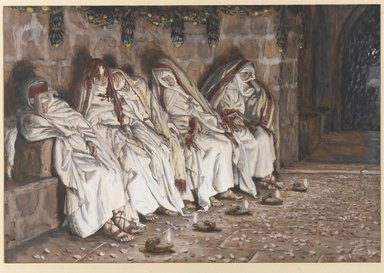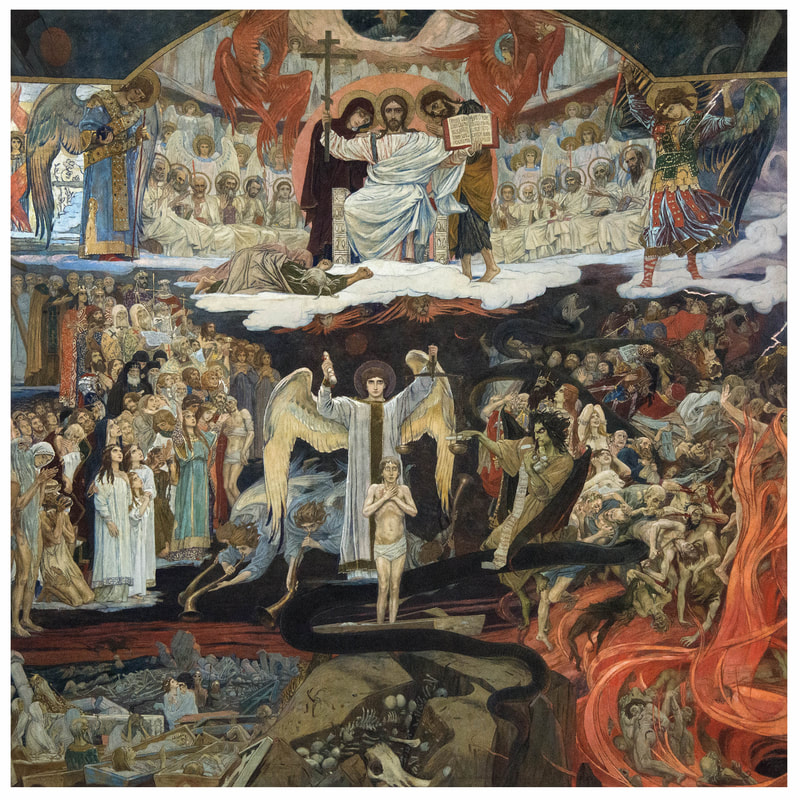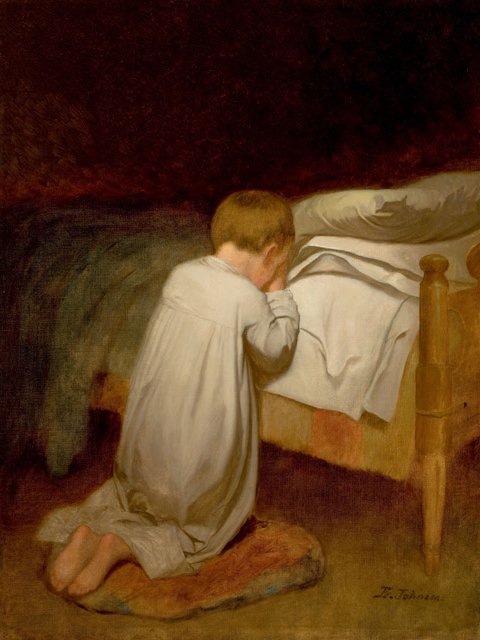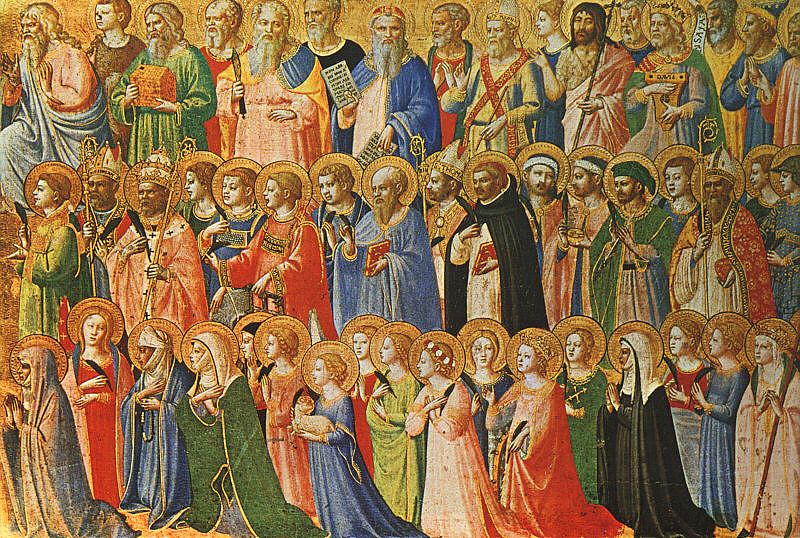Matthew 25:1-13
November 22, 2020
“Watch therefore, for you know neither the day nor the hour.” This is an earnest warning from our Lord Jesus. Jesus will come to judge the living and the dead. Some will be found unprepared and will be barred from the heavenly banquet for all eternity. Those who are prepared will be ushered into the heavenly wedding banquet to enjoy eternal life. We do not know when this hour will come, so we should keep watch lest we be found unprepared.
Yet, how is one found prepared? Jesus says that the wise are prepared, while the foolish are unprepared. Yet, be careful. The foolishness Jesus speaks of is not the foolishness of this world. And the wisdom Jesus speaks of is not the wisdom of this world. Rather, it is as Scripture says, “For the word of the cross is folly to those who are perishing, but to us who are being saved it is the power of God,”, and “For since, in the wisdom of God, the world did not know God through wisdom, it pleased God through the folly of what we preach to save those who believe.” (1 Corinthians 1:18, 21) So, the wisdom Jesus speaks of here is entirely different from the wisdom of this world. And the foolishness Jesus speaks of is not what the world considers folly.
The ten virgins represent the church on earth. They all look the same. They look good. The only difference is that some have oil and some do not, but you won’t be able to tell that with your eyes until the lamps are lit. But outward appearance does not make one part of the true Church or make one wise. Only faith, which is in the heart can do that. The wise virgins had oil in their flasks. Their oil is faith given to them by the Holy Spirit through the Word of God. Just as you can’t see the oil in the flasks, you can’t see someone’s faith in the heart. The foolish virgins had no oil in their lamps. Their lamps were just pretty decorations. Beyond that, they were utterly useless.
To be wise means to listen to the Word of God, so that you repent of your sins and believe in God’s promise of salvation in Jesus Christ. The foolish pay no attention to God’s word, refuse to repent of their sins, and refuse to believe in the Gospel.
To be wise means to be humble and to fear the Lord. Scripture says, “The fear of the Lord is the beginning of wisdom.” To fear the Lord means to recognize him as Judge and to turn to him for salvation. Scripture also says, “The fool says in his heart, ‘There is no God.’” Despite what many think in this age where atheism is so rampant, the Psalmist is not speaking simply of those who deny the existence of a Creator. Rather, he speaks of those who behave in their heart as if there is no God to judge them. It is as Psalm 36 states, “Transgression speaks to the wicked deep in his heart; there is no fear of God before his eyes. For he flatters himself in his own eyes that his iniquity cannot be found out and hated.” And so many nominal Christians live as if there is no God, as if God cannot look into their hearts and judge them, as if we should not in fear humble ourselves before God and ask for forgiveness every day.
To be wise means to meditate on the words of God. Proverbs 9 states, “Give instruction to a wise man, and he will be still wiser; teach a righteous man, and he will increase in learning.” There is no such thing as a stagnant faith. We are surrounded by attacks against our faith. The devil roars at us. The world lures us away. And our sinful flesh battles against our spirit! If you are not growing in faith, you are shrinking in faith. To despise the word of God, to think that you just don’t need it or that you can go without it is foolish. It is a sure way to destroy your faith in Christ and to become unprepared for the return of Christ.
Sometimes I wonder whether Christ will decide to return during the Divine Service. How wonderful that would be! To prepare your heart to receive Christ in faith, to believe what your eyes cannot yet see, and then be so blessed as to see your Savior coming with salvation! And how awful it would be if you chose something else than to hear God’s Word! If the Lord finds you seeking after the “important” things of this life instead of filling your lamps with oil!
Skipping church is the most foolish and reckless thing that Christians do on earth. Not only is it a sin breaking the Third Commandment, which forbids us to despise preaching and his Word, but commands us to hold it sacred and gladly hear and learn it, but it is dangerous! Scripture promises, “Faith comes by hearing and hearing through the word of Christ.” And the Psalmist says, “How can a young man keep his way pure, by guarding it according to Your Word.” Yet, Christians habitually ignore this promise and warning as if they are thinking, “I think I’ve got enough oil in my lamp to get me to next week or next month or Christmas Eve.” This is like driving down the interstate on empty, but not taking the next exit to get gas, because you’re making good time, or the kids are asleep, or you like the song on the radio. You’d find yourself stranded on the side of the road.
Yet, hearing God’s word but not listening is just as damaging as not hearing it at all. Jesus says, “Everyone who hears these words of mine and does not do them will be like a foolish man who built his house on the sand. And the rain fell, and the floods came, and the winds blew and beat against that house, and it fell, and great was the fall of it.” (Matthew 7:26-27) And this leads to our next point about the wise. The wise accept rebuke and correction. That is to say, the Word of God has an effect on them. When Christians hear that they have sinned, they repent of their sins. They know that it does them no good to defend themselves. It is God who justifies. Without the Word of God, it is impossible to have saving faith. And if you reject God’s Word, so that it cannot work on your heart to bring you to repentance and to trust in its promises, then you will remain without oil in your lamp.
The oil of the foolish runs out, because they behave as if they have plenty of time. They get preoccupied with the things of this world. They’re concerned with being found wise by those, whom God finds to be utter fools. And this foolishness spreads to all levels of the church. Entire church bodies devote themselves to ever new ways of being found wise by those who hate God. And so, shepherd-less flocks gather to hear words and leave without a drop of oil added to their flasks. And so, the wise must always take heed and listen to the voice of their Shepherd, Jesus Christ and to mark and avoid false teachers, who do not preach God’s Word.
When Jesus returns, there will no longer be any time to repent. There will be no time to get oil. You can pray for your loved ones, but you cannot believe for them. In order to be saved, one needs to have faith now. When Christ returns, there will no longer be time.
“Amen, I say to you, I do not know you.” These are the worst words you can possibly hear from Jesus’ mouth! Amen is the word we use at the end of prayers to express our firm faith that God hears us and will answer our prayers. We say, “amen,” at a Baptism to confess God’s sure promise to forgive and save the baptized. We say, “amen,” after we receive the Absolution, because we are confident that as far as the east is from the west, so far does God remove our transgressions from us. We say, “amen,” when we receive Christ’s body and blood for the forgiveness of our sins, because we confess that we are certain that we have Communion with Christ, forgiveness of sins, life, and salvation. We say, “amen,” when the pastor says, “The Lord bless you and keep you. The Lord make his face shine upon you and be gracious to you. The Lord lift up his countenance upon you and give you peace.”, because we believe that the almighty God, the Father, the Son, and the Holy Spirit has indeed put his name upon us and will save us on the Last Day. Amen is the most comforting word we Christians ever say or hear. It means, “This is most certainly true.”, and “Yes, yes, it shall be so.” Yet, Jesus uses this beautiful word in the most horrifying way. It means that the time to believe the Gospel is over. The door is shut. Amen, Jesus does not know you. That’s the end of it.
Yet, Scripture says, “For God has not destined us for wrath, but to obtain salvation through our Lord Jesus Christ, who died for us so that whether we are awake or asleep we might live with him.” (1 Thess. 5:9-10) How can we believe these words are meant for us? Because we believe the Gospel now. While it is still day and the hour has not yet come, we believe now that Christ Jesus has died for us, that he has forgiven our sins. We say, “Amen,” to the Gospel now, so that we will not hear Jesus say, “Amen, I do not know you.”, but rather, “Amen, I do know you as surely as I placed my name on you in Baptism, absolved you of all your sins, fed you my body and blood, and shepherded you throughout your life. I know you. Come into my wedding hall. Amen, I say to you, I know you and will know you forever.” We say, “amen.”, now so that we will never hear the dreaded amen of condemnation, but only the precious Amen of the Gospel for all eternity.
To be wise means to believe the Gospel that Jesus Christ has truly washed away your sins so that you are forgiven before God your Father in heaven. When we say, “amen” to the Gospel of Jesus Christ, it is like we’ve just put the cap on our flasks after filling it with oil. We hear the Gospel and we believe it. And everyone who confessing Christ will be saved. Amen. Amen. Amen.




 RSS Feed
RSS Feed